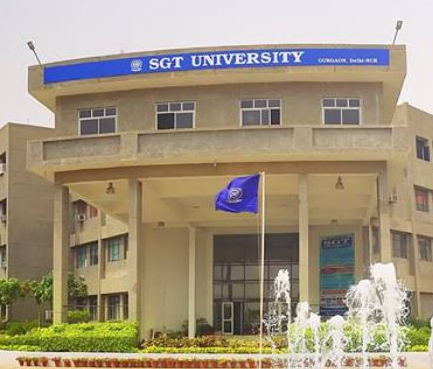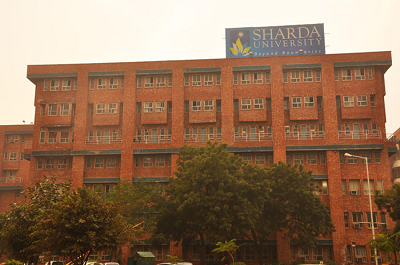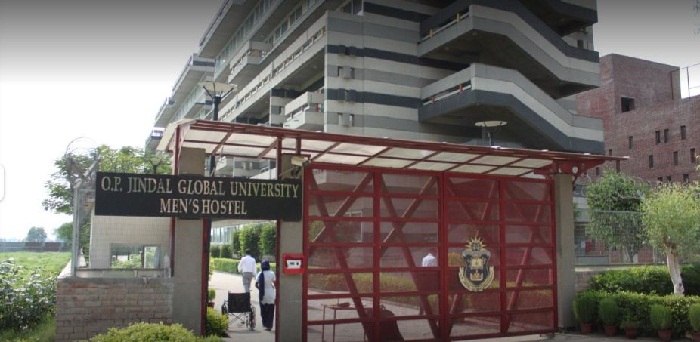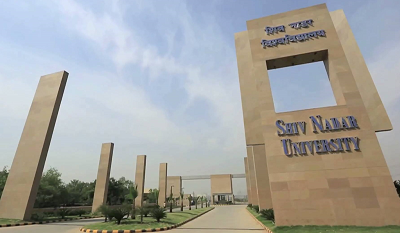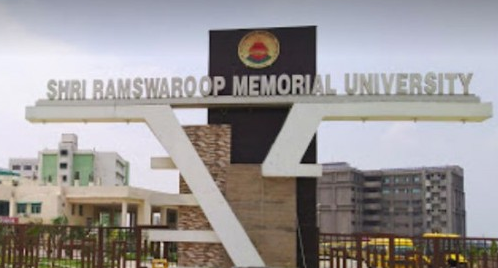SRM University MBA 2025-26 admissions are open with Phase 1 application deadline on February 21, 2026, and SRMJEEM exam on February 28, 2026, as per the official application portal. Admissions are primarily based on SRMJEEM scores, with scholarships available based on percentile or score. (Updated 3 Jan 2026; )
Eligibility Criteria:- Students must completed their MBA course from recognized with not less than 50% marks. SRM University MBA entrance exam that is conducted by national state level entrance exam like CAT/MAT/XAT/CMAT etc.
SRM University MBA Admission 2025 Highlights
| Course Name | [MBA] Master of Business Administration |
| Duration | 2 Year |
| Course Type | Post Graduation |
| Eligibility | Graduation |
| Approx Fee | Rs.- 169,000/ |
| University Name | SRM University |
| Approved By | UGC BCI, AICTE, AIU |
| University Type | Private University |
| Founded | 2013 |
| Address | Kundli Urban Complex, Post Office P.S.Rai, Sonipat, Haryana 131029 |
| Application Form Online Date | – |
| University official Website | https://www.srmist.edu.in/ |
SRM University MBA Admission Process
- Candidates have to score in GMAT/TANCET/CAT/XAT/MAT.
- The Selection process is based on the score of these exams.
- The University declares the merit list after the entrance exam.
- The eligible students can apply for admission on the official website.
- The University conducts Group discussions and Personal interview rounds.
- The Selected Students can complete the documentation formalities.
Required Documents for Admission
- Caste certificate.
- Migration certificate.
- Scanned copy of passport size photograph and signature.
- 10th class mark-sheet and certificate.
- 12th class mark-sheet and certificate.
- Graduation mark-sheet and certificate.
SRM University MBA Syllabus 2024
| Semester 1 | |
| S.No | Name of subjects |
| 1 | Managerial (Micro) Economics |
| 2 | Business Communication |
| 3 | Legal and Business Environment (Micro and Macro) |
| 4 | Financial Reporting, Statements, and Analysis |
| 5 | Marketing Management |
| 6 | Operations Management |
| 7 | Computer Applications for Business |
| 8 | Organizational Behavior |
| 9 | Entrepreneurship |
| 10 | Business Statistics and Analytics for Decision Making |
| 11 | Managerial Skills for Effectiveness |
| Semester 2 | |
| S.No | Name of subjects |
| 1 | Indian Economy and Policy |
| 2 | Indian Ethos and Business Ethics |
| 3 | Corporate Finance |
| 4 | Indian Financial System and Financial Markets |
| 5 | Marketing Research |
| 6 | Project Management |
| 7 | Quantitative Techniques |
| 8 | Organization Design |
| 9 | Corporate Strategy |
| 10 | Corporate Social Responsibility and Sustainability |
| 11 | Human Resources Management |
| Semester 3 | |
| S.No | Name of subjects |
| Functional Electives | |
| 1. Finance | |
| 1 | Investment Analysis and Portfolio Management |
| 2 | Managing Banks and Financial Institutions |
| 3 | Project Appraisal and Finance |
| 4 | Financial Markets and Services |
| 5 | Mergers Acquisitions and Corporate Restructuring |
| 6 | Financial Derivatives |
| 7 | International Finance |
| 8 | Behavioral Finance |
| 9 | Taxation |
| 10 | Valuation |
| 2. Marketing Management | |
| 1 | Consumer Behaviour |
| 2 | B2B Marketing |
| 3 | Retail Management |
| 4 | Sales and Distribution Management |
| 5 | Marketing to Base of Pyramid Consumers |
| 6 | Integrated Marketing Communications/Promotion Strategy |
| 7 | Digital and Social Media Marketing |
| 8 | Product and Brand Management |
| 9 | Services Marketing |
| 10 | International Marketing |
| 3. Operation Management | |
| 1 | Supply Chain and Logistics Management |
| 2 | Quality Toolkit for Managers |
| 3 | Pricing and Revenue Management |
| 4 | Operations Strategy |
| 5 | Sales and Operations Planning |
| 6 | Behavioral Operations Management |
| 7 | Operations Research Applications |
| 8 | Management of Manufacturing Systems |
| 9 | Sourcing Management |
| 10 | Supply Chain Analytics |
| 4. Human Resource Management /Organisation Behaviour | |
| 1 | Manpower Planning, Recruitment, and Selection |
| 2 | Employee Relations |
| 3 | Human Resource Metrics and Analytics |
| 4 | Compensation and Benefits Management |
| 5 | Performance Management Systems |
| 6 | Team Dynamics at Work |
| 7 | Strategic HRM |
| 8 | International HRM |
| 9 | Cross-Cultural Management |
| 10 | Understanding Self: India Perspective |
| 11 | Organizational Change and Development |
| 12 | Leadership |
| 5. Strategy | |
| 1 | Strategic Management of Services |
| 2 | Competing in Global Markets |
| 3 | Dynamics of Framing and Executing Strategy |
| 4 | Entrepreneurship in Practice |
| 5 | Foundations of Strategy Consulting |
| 6 | Strategic Leadership |
| 7 | Designing and Configuring Business Models |
| 8 | Corporate Governance |
| 6. Management Information Systems | |
| 1 | Data Mining for Business Decisions |
| 2 | Managing Software Projects |
| 3 | Managing Digital Innovation and Transformation |
| 4 | IT Consulting |
| 5 | E-Commerce and Digital Markets |
| 6 | Strategic Management of IT |
| 7 | Managing Digital Platforms |
| 7. Business Analytics | |
| 1 | Data Visualization for Managers |
| 2 | Business Forecasting |
| 3 | Data Science using R |
| 4 | Business Data Mining |
| 5 | Marketing Analytics |
| Semester 4 | |
| S.no | Name of subjects |
| Non Functional Electives | |
| 1. Entrepreneurship | |
| 1 | Technology Appreciation and Intellectual Property Rights |
| 2 | Innovation Technology and Management |
| 3 | Indian Models in Entrepreneurship |
| 4 | Social entrepreneurship |
| 5 | Venture Valuation and Accounting |
| 6 | Entrepreneurial Marketing |
| 7 | Entrepreneurship Lab |
| 2. International Taxation And Technology | |
| 1 | Foundation Of International Tax And Technology |
| 2 | US Corporate Taxation |
| 3 | US Partnership Taxation |
| 4 | US Taxation Of Foreign Corporation |
| 5 | US Individual Taxation |
| 6 | Taxation Technology |
| 3. Retail Management | |
| 1 | Logistic and Supply Chain Aspects in Retail Management |
| 2 | Retail Brand Management |
| 3 | Retail Consumer Behavior |
| 4 | E–Retailing |
| 4. Project management | |
| 1 | The Project Organization |
| 2 | Project Planning and Scheduling |
| 3 | Project Budgeting and Cost Management |
| 4 | Project Execution, Monitoring, And Control |
| 5 | Project Closure, Ethics, And Digital Formations |
| 5. Tourism And Hospitality Management | |
| 1 | Hospitality Management |
| 2 | Event Management |
| 3 | Advanced Kitchen And Service Management |
| 4 | Hospitality Facility Planning |
| 5 | International Tourism Management |
| 6 | Revenue And Pricing Management For Hospitality Industry |
| 7 | Travel And Tour Operations Management |
For more detail visit here.
FAQ
Q. What is the full form of SRM?
Ans. The full form of SRM is Sri Ramaswamy Moral Institute of Science and Technology
Q. How I can get MBA Admission in SRM university?
Ans. Candidates have to complete their bachelor’s degree and also entrance exam score in CAT/ MAT/GMAT/XMAT/NMAT/CMAT will directly get shortlisted for MBA entrance exam for personal interview. After selecting in personal interview candidates can take admission in MBA acadmic course.


